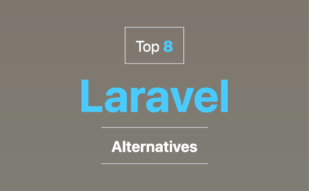Magento is an open-source ecommerce platform widely used by over 250,000 merchants worldwide since its launch in 2008.
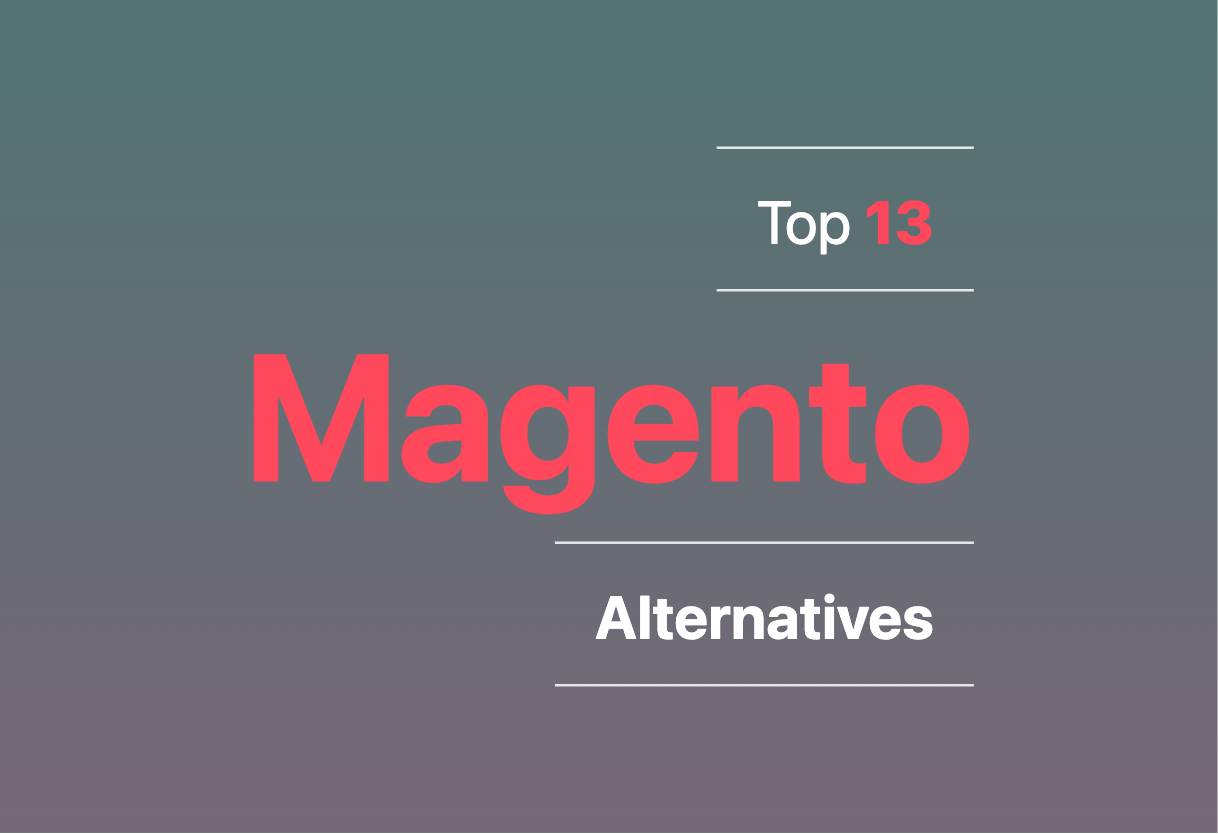
Alternatives to Magento encompass a range of options such as Adobe Commerce, BigCommerce, PrestaShop, WooCommerce, Shopify, OpenCart, Drupal, Squarespace, Wix, WordPress, Laravel, Joomla, and Etsy.
Adobe Commerce
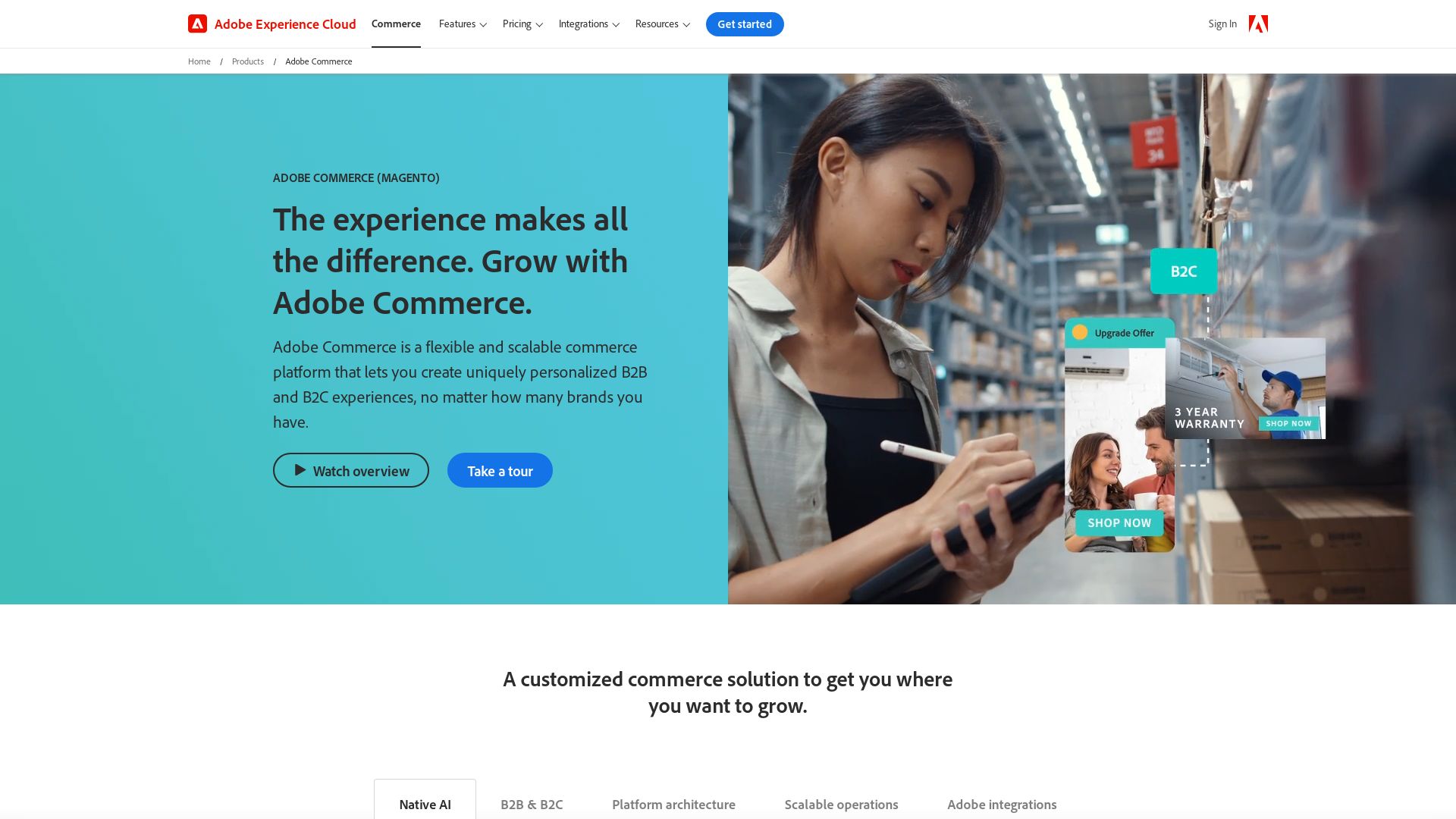
Welcome to the grownups’ table, folks! Adobe Commerce, a veritable titan in the ecommerce world, launched in 2019 after Adobe (yes, THAT Adobe) gobbled up Magento Commerce in 2018. Not your average eCommerce platform, Adobe Commerce Cloud comes with the finesse of integrating seamlessly with Adobe Experience Cloud tools. Everything’s in the cloud, you see?
Adobe Commerce Top Features
- Powered by open-source Magento system, alllowing for a high degree of customization.
- Comprehensive suite of analytical tools – it’s like having a crystal ball for your business.
- Responsive web design for a seamless user experience across multiple devices. Nice touch!
- Aligns with SEO best practices. It’s like it’s been coached by Google.
- Adds additional functionality with marketplace extensions. Just don’t go overboard, or you’ll need a citation for excessive adorability.
| High development costs | You’ll need to shell out the big bucks thanks to its extensive setup requirements. Say, six figures? |
| Costs increase with customization | The more you tinker with the source code, the higher your bill. It’s like a double-edged sword, really. |
Adobe Commerce Downsides
- The pricing model is as clear as mud, just like Magento. Surprise!
- It’s like a high-maintenance date, the level of customization it requires.
Adobe Commerce Pricing
OK, let’s talk numbers. Adobe Commerce operates a licensing fee model. This covers everything from the cloud-based infrastructure (pretty neat, right?) to the potential hefty setup costs. Want Magento Open Source? That’s free, but you’ll need to fork over for hosting, development, and extensions. So, pick your poison, folks!
Adobe Commerce Use Cases
Use case 1: Large Corporations
Arguably, Adobe Commerce is looking out for the big guns among us: think Coca-Cola, Nike, Samsung—those guys love it. Its extensive setup and customization options can handle their complex requirements like a boss.
Use case 2: Medium Businesses
The Adobe Commerce cloud option could suit medium-sized businesses who’ve got something to prove in the town. Thanks to the cloud-based setup, you don’t have to worry about the infrastructure part. Breath of fresh air, eh?
Use case 3: Companies Needing Advanced Analytics
If your business thrives on granular data (we’re guessing most do), Adobe Commerce might fit like a glove. Its analytical tools could give Sherlock Holmes a run for his money.
BigCommerce
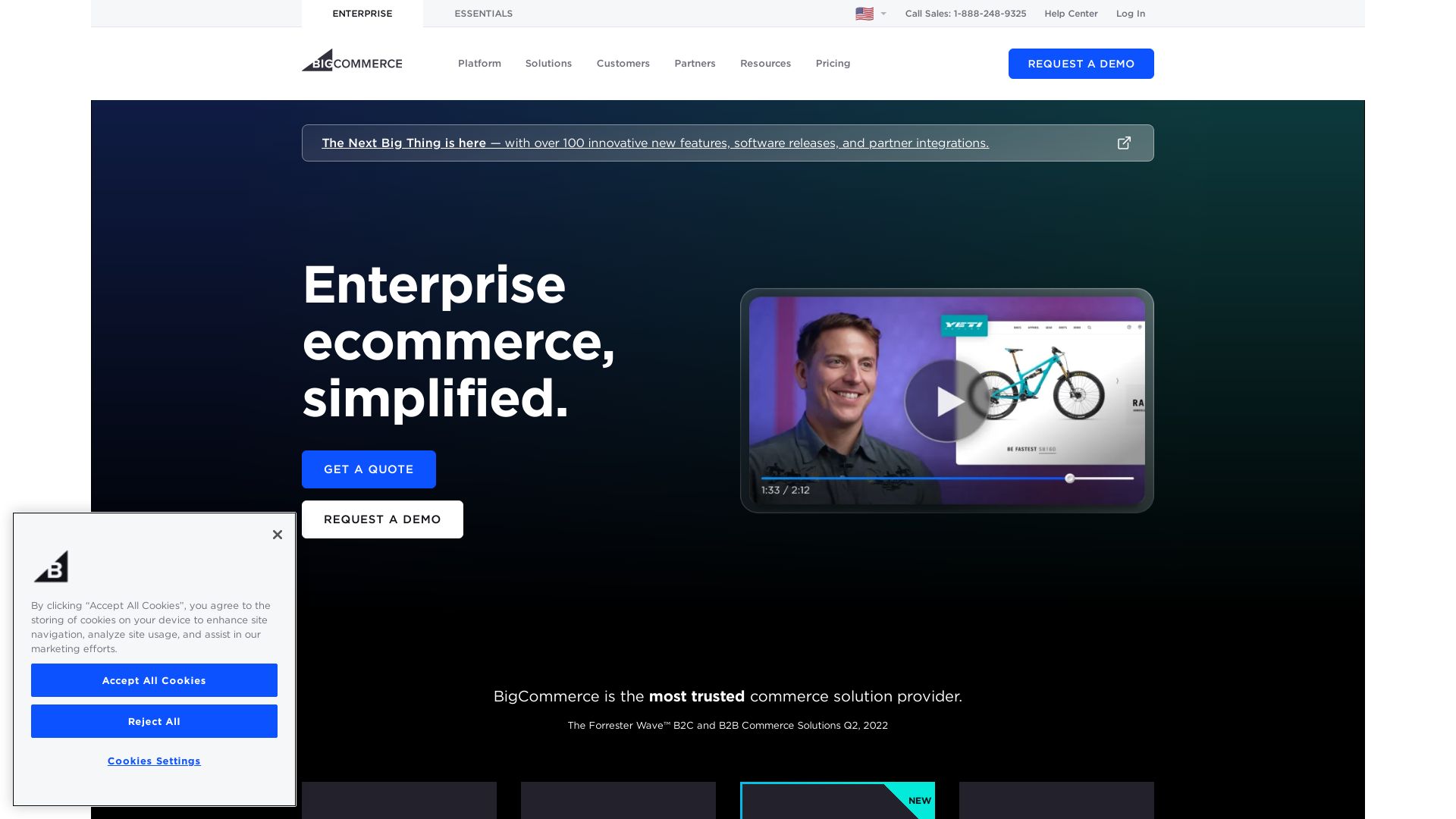
An eminent player in the ecosystem of eCommerce, BigCommerce is a platform well optimized for online businesses, distinguished by its broad customization, user-friendliness, and responsiveness across devices.
BigCommerce Top Features
- Over 100 themes with drag-and-drop functionality for convenient setup.
- Open API offering broad customization options by tweaking HTML and CSS, thereby redefining any store element.
- Stencil Theme Platform with a WYSIWYG editor, simplifying feature modifications even without coding knowledge.
- Themes optimized for mobile and compliant with Google AMP, ensuring seamless browsing experience across devices.
- Inventory tracking and management, alongside Abandoned Cart Recovery Settings and Analytics, bolster business operations and drive sales.
| Feature | Benefit |
|---|---|
| Themes bundled with sales and marketing tools | Ignites business growth by amplifying reach. |
| Blog tools | Enables content marketing, a proven pathway to growth. |
| Coupon Code Creation | Pushes sales by attracting bargain hunters. |
BigCommerce Limitations
- Heavy eCommerce players may find the platform’s feature-set inadequate for their sophisticated needs.
- Lack of certain advanced marketing and AI shopping features.
- A change in theme can disrupt the store’s custom HTML and CSS modifications.
BigCommerce Pricing
BigCommerce offers varied pricing plans suitable for different business sizes, notably startups, small businesses, mid-market brands, and enterprises. It also provides a free trial for users to have a feel of the platform and its offering.
BigCommerce Use Cases
Use case 1: Online Retailers
BigCommerce serves as an ideal solution for online retailers aiming to reach a larger audience, simplify inventory management, and boost sales with analytics-driven strategies.
Use case 2: Wholesalers
Wholesalers can leverage BigCommerce’s highly customizable offering for scaling their business and seamlessly integrating with purchase and supply systems.
Use case 3: Startups
With its ease of set-up and availability of essential eCommerce tools, BigCommerce is an exceptional platform for startups stepping into the digital commerce arena.
Laravel
Meet Laravel, the rockstar of PHP frameworks famously employed for eCommerce development. Whether you’re a small shop or a bustling business, this expressive syntax specialist is your go-to for user-oriented digital storefronts.
Laravel Top Features
- Scalability: Can grow with your business, from startup to stardom.
- Security: Laravel is your shield against naughty virtual invaders.
- Rich ecosystem: Who doesn’t like a vibrant neighborhood? It’s a haven for crackerjack eCommerce developers.
- Expressive Syntax: Beautiful to write, easy to understand. A lot like a tech poet!
| Feature | Why It Rocks |
|---|---|
| High-Level Security | Protects customer data like a Guard Dog – only a virtual one. |
| Model-View-Controller (MVC) Architecture | Promotes clean coding and scalability – like a well-organized closet for codes. |
| Built-in Libraries and Packages | Eliminates redundancy, saving time and headaches caused by endless coding. |
Laravel Downsides
- Requires Proper Planning: Laravel is a complex beast for large-scale projects. Plan ahead or face the beast!
- Job-specific Laravel Development Firms: They charge a handsome fee. Hiring Laravel developers might burn a hole in your pocket.
Laravel Use Cases
Use case 1
Laravel is the framework of choice for eCommerce sites. You can easily integrate with mailing lists and create customer-centric stores.
Use case 2
Gearing up your online business for the rise of smart devices? Laravel supports web & mobile app development, keeping you in touch with your mobile-centric customers.
Use case 3
Creating custom web applications? Laravel’s elegant syntax and developer-friendly tools bring your custom ideas to real code-life.
Joomla
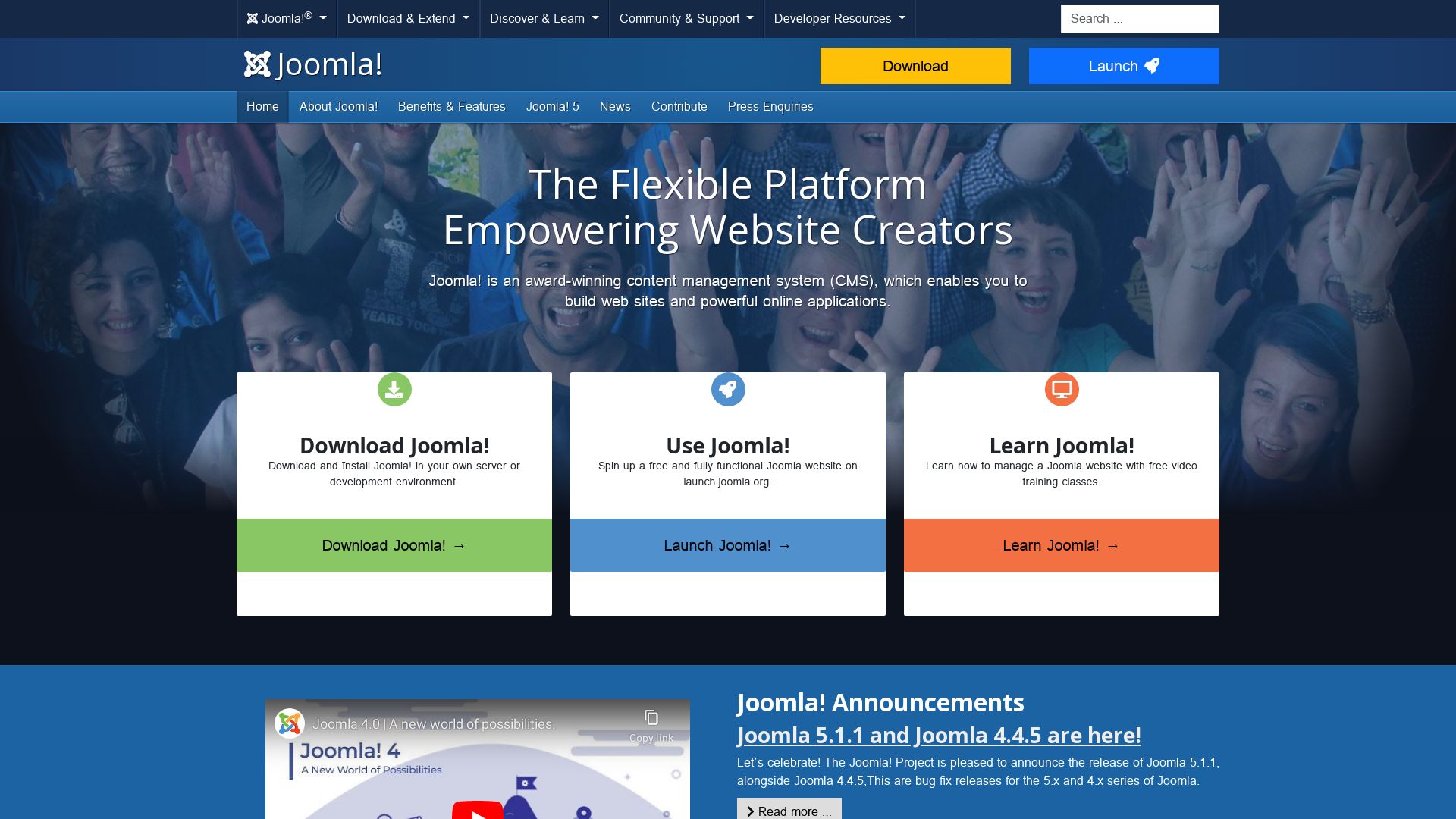
An open-source content management system (CMS), Joomla is a powerful platform building versatile websites and applications. Be it blogs or eCommerce stores, Joomla’s intuitive interface makes for an unfettered utilization of its cutting-edge features.
Top Features of Joomla
- Dynamic Website & App Development: Joomla’s hallmark is its capability to create and manage a diverse range of websites and applications, evidencing its dynamism.
- High Adaptability: From installation and configuration to design, development, and marketing, Joomla’s flexibility has been embraced by web design professionals since 2009.
- Latest Version: Joomla updates speak volumes of best security, performance, and SEO practices, leading to outstanding digital outcomes.
- Expandable eCommerce Platform: Joomla’s expansivity makes it a great option for eCommerce sites, with add-on “Hikashop” making SEO optimization, shipping options, and more, easy-peasy.
- Enhanced Accessibility: Built to be W3C Accessibility guidelines-compliant, Joomla ensures that each of your page is accessible to all.
| Extensions | Over 6,000 Joomla extensions offer almost unbounded customization and security options for your eCommerce stores. |
| Scalability | With an architecture that includes a front controller and both frontend and backend interface for management, Joomla scales to meet the publishing needs of any business, individual, or web content. |
| Free/Open-Source | Joomla being free and open-source allows access to language internationalization, making it a globally-friendly CMS. |
Joomla Limitations
- Learning Curve: Joomla, though power-packed, might pose a learning challenge for those new to CMS, especially during the initial setup.
- Setup Complexity: Joomla’s extensive feature list results in a complex setup process that may deter businesses with limited resources.
- Lack of Theme and Template Variety: While Joomla offers a multitude of extensions, it has fewer themes and templates compared to its competitors.
Joomla Pricing
Joomla is a free, open-source platform making it an affordable option for businesses and individuals seeking a robust CMS.
Joomla Use Cases
eCommerce Stores
With features like Hikashop and an array of SEO tools, Joomla becomes a viable option for online stores that need effective product management, and streamlined shipping options.
Professional Blogging
Joomla’s CMS features readily lend itself to professional bloggers who require an intuitive and comprehensive platform.
Business Marketing
From small businesses to large corporations looking for a dynamic online presence, Joomla’s advanced features cater to diverse marketing needs.
Etsy
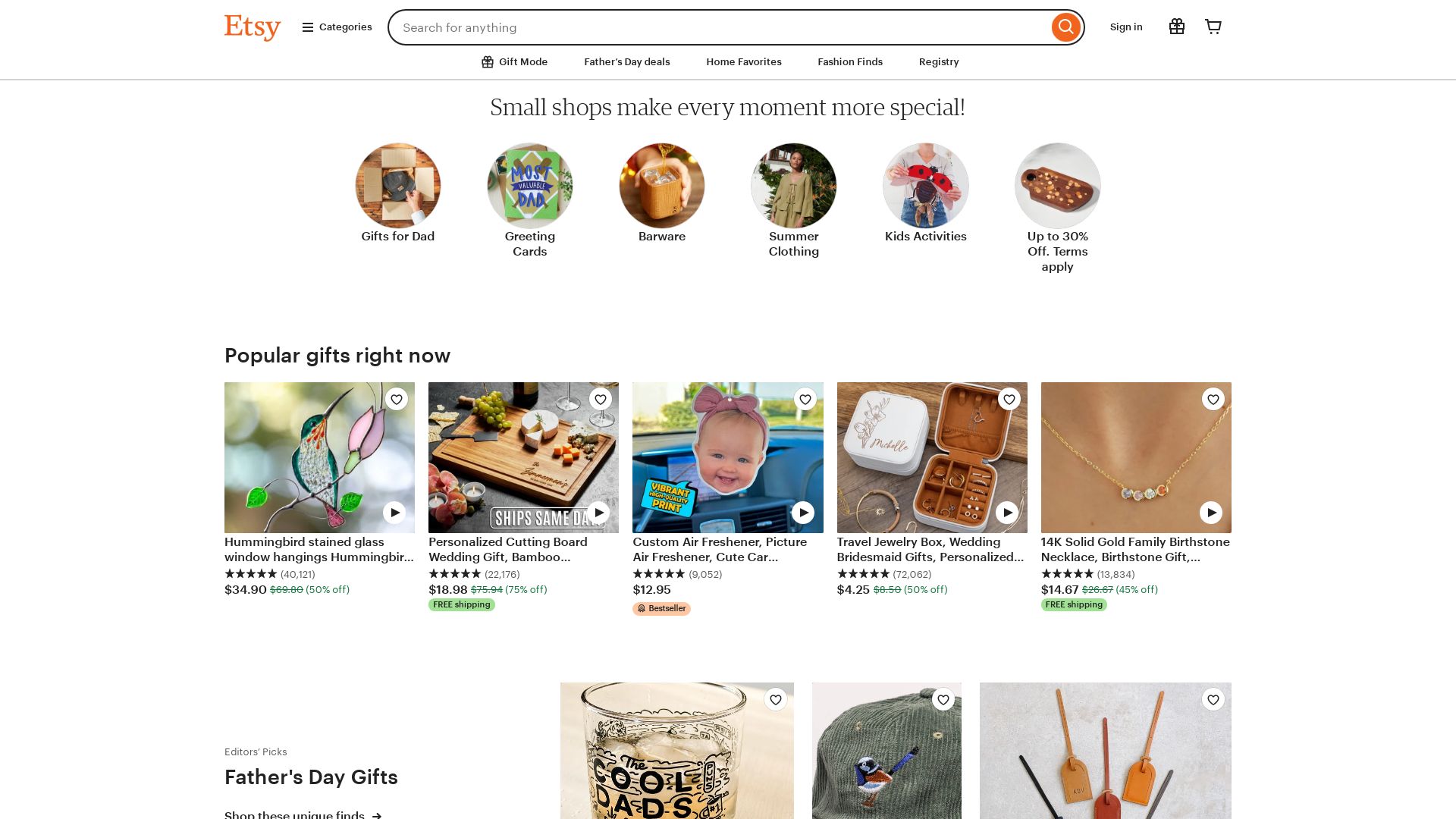
An online playground for independent craftsmen and vintage collectors, Etsy has built a reputation for its user-friendly interface and technical acumen, garnering over 4.3 million users.
Etsy Top Features
- Community Connection: Directly communicate with customers, sidestepping the need for expensive advertising.
- Internal Analytics: Track critical metrics like orders, revenue, customer favourites, and views.
- SEO optimization: Enhance discoverability with customizable titles and product descriptions.
- Logistics: Calculate shipping costs, print labels, generate product invoices, and secure electronic payments, including PayPal.
| Feature | Description |
|---|---|
| Inbuilt Seller App | Check shop analytics, manage orders, respond to consumer queries, and modify shop settings directly from your mobile device. |
| Educational Content | Supports seller growth through informative resources and guides. |
Etsy Limitations
- Limited site customization: Etsy does not provide a platform for unique domain creation.
- Support: You might face delays in getting responses from customer service.
- Not suited for larger inventory management: While Shopify offers a comprehensive suite of sales tools, Etsy provides simpler, user-friendly tools.
Etsy Pricing
Etsy charges a $0.20 listing fee per good and a 5% transaction fee. Payment processing comes at a charge of 3% + $0.25. Etsy offers three plans: Etsy Standard, Etsy Plus at $10/month, and Etsy Pattern at $15/month offering additional benefits.
Etsy Use Cases
Use case 1: Independent Craftsmen
This platform thrives as a marketplace for individual craftsmen. The robust yet simple tools help them manage their business efficiently.
Use case 2: Vintage Collectors
Etsy serves vintage collectors by offering a venue to showcase and sell unique items.
PrestaShop
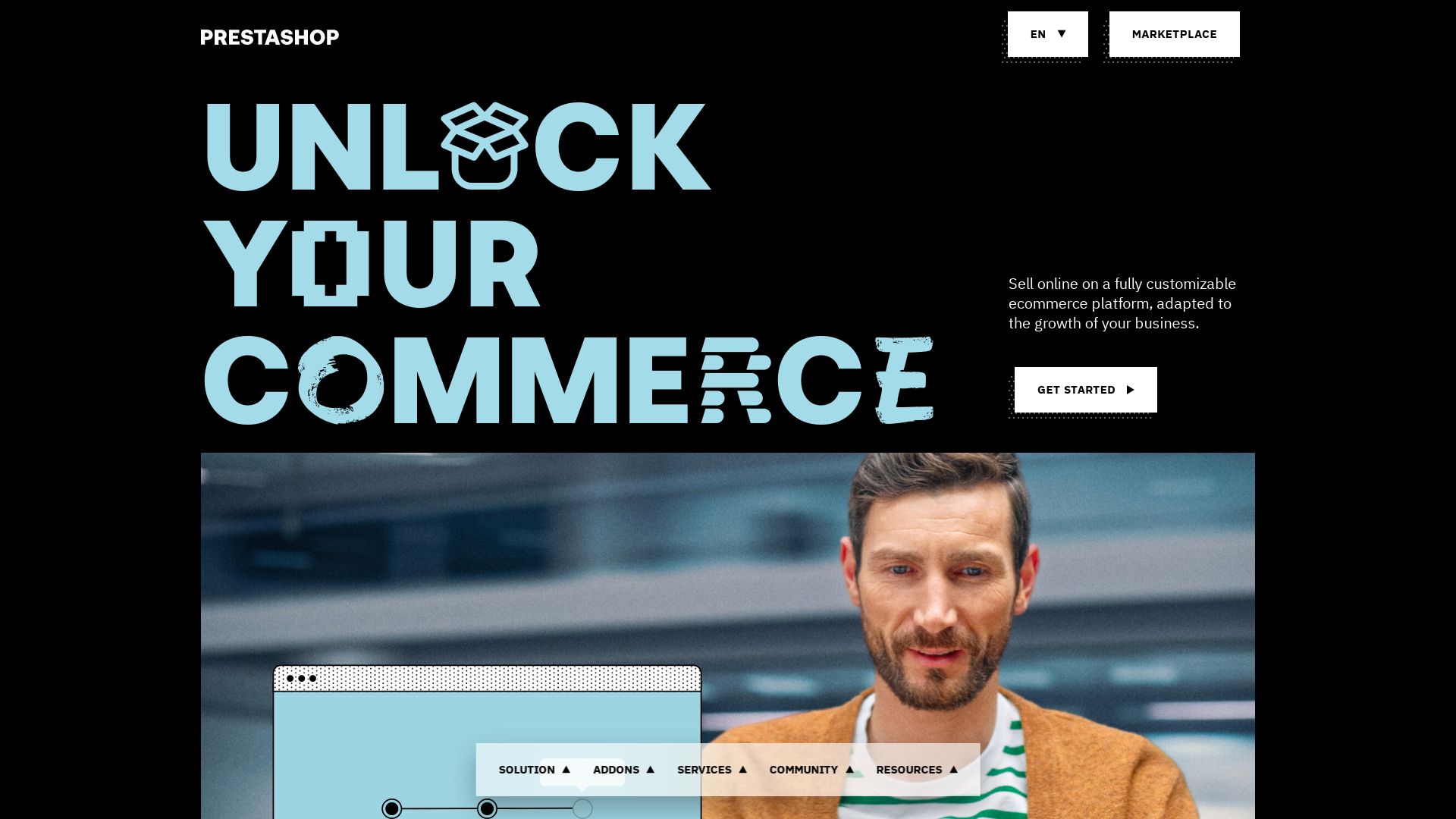
Born in Paris in 2005, PrestaShop is a remarkable open-source solution for eCommerce. It is the brainchild of EPITECH IT School and was originally known as phpOpenStore. With its roots deeply embedded in technology and innovation, PrestaShop has gained over 300k+ merchants over the years and provides a comprehensive platform for eCommerce needs.
PrestaShop Top Features
- Customizable Themes: PrestaShop offers a variety of themes that users can tailor to their specific needs.
- Add-on Modules: Users can expand functionalities to suit their unique requirements via a wide range of add-on modules.
- Secure Transactions: PrestaShop ensures safe and secure online transactions through SSL and HTTPS protocols.
- SEO-friendly: The platform is designed to enhance visibility on search engines.
- Mobile-friendly: To cater to customers on the go, PrestaShop is built to be compatible with mobile devices.
| Feature | Description |
|---|---|
| Admin Capabilities | Includes inventory management, SEO capabilities, custom promotions, advanced navigation & search, and multiple-store management. |
| Add-ons | Distinct features such as Advanced Search 4, Google Tag Manager Enhanced Ecommerce, MigrationPro, PrestaShop Super Speed Addon, Pretty URLs, and Verified Reviews Addon. |
| Multiple Language Support | With translation into 75 languages, PrestaShop strives to make eCommerce a global affair. |
PrestaShop Downsides
- Additional Costs: While PrestaShop is free, certain additional features or modules may come with costs.
- Developer Skills Needed: To get the most out of PrestaShop, users may need some developer expertise.
- Module Incompatibility: There might be instances of incompatibility between different modules which could hinder smooth operation.
PrestaShop Pricing
As an open-source platform, PrestaShop is essentially free. However, to add expanded functionalities and customizations, users may incur additional costs related to selected plugins and themes.
PrestaShop Use Cases
Use case 1: Les Raffineurs
Les Raffineurs, a Parisian store, leveraged the potential of PrestaShop to reach a global audience. With 150k+ monthly visits and a product catalog of 30k+ items, the store stands as a testament to PrestaShop’s scalability and global reach.
Use case 2: Social Media Integration
With the growing prevalence of social media in eCommerce, PrestaShop has shown its usability with popular platforms. 34.5% of its stores use Instagram, and 48% utilise Facebook, indicating its keen adaptaion to modern marketing channels.
Use case 3: Growth
A testament to its success, PrestaShop has demonstrated a consistent growth of 2.3% quarter over quarter and 8% YoY in 2022. Its use in India as the 8th most popular open-source framework and 15th popular eCommerce framework underlines its wide acceptance and effectiveness.
WooCommerce
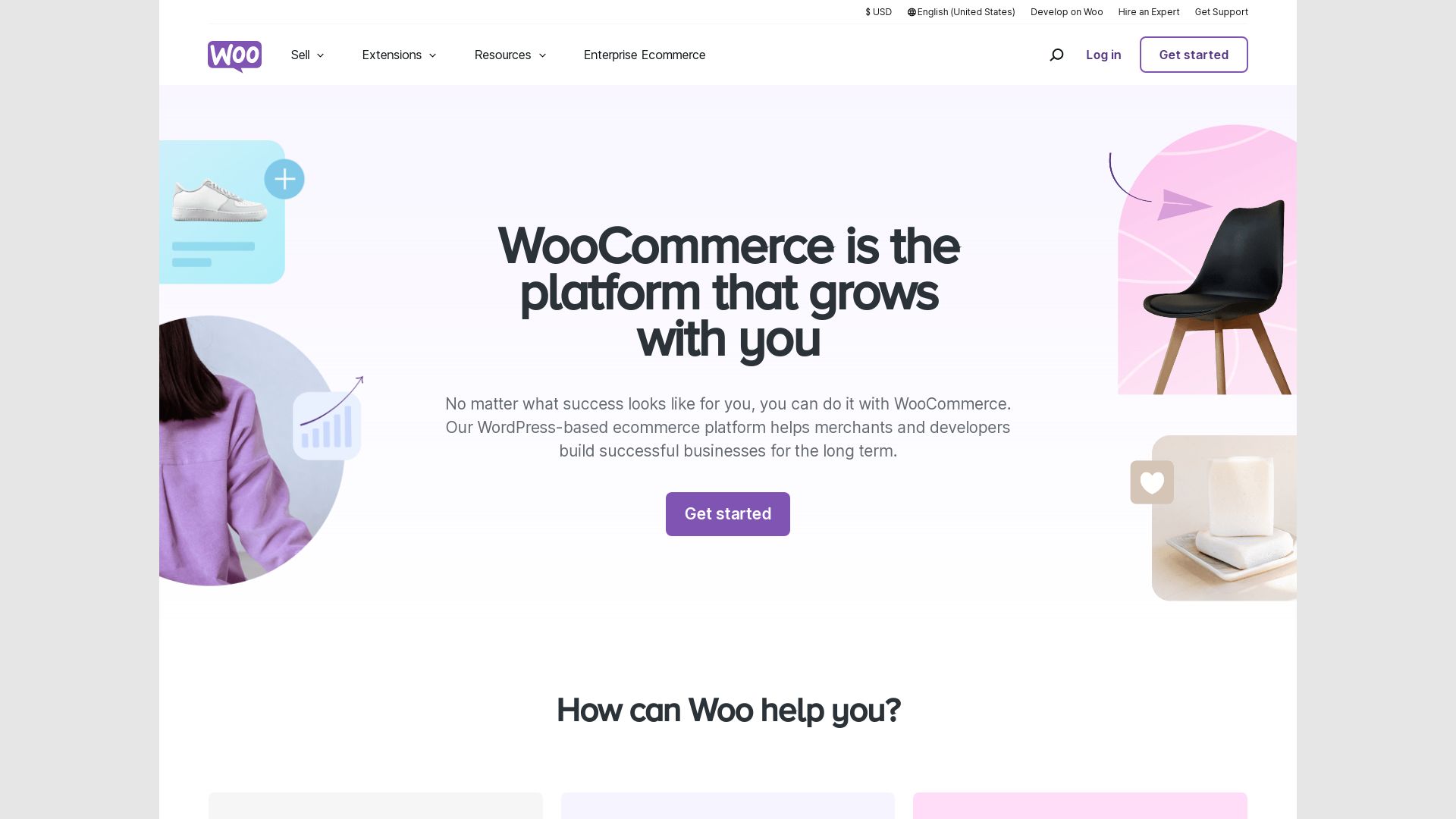
An open-source ecommerce platform, WooCommerce, powers 3.9 million online stores, making it a haven for a fourth of the top one million ecommerce sites. Built on the sturdy and wide-spread foundation of WordPress, it is a beacon of customization, flexibility, and user-friendly e-commerce architecture.”
WooCommerce Best Features
- Flexibility & High-Level Customization: Woo offers full customization options, mobile-ready designs, and the ability to convert any existing WordPress site into an online store.
- Payment Integration: Featuring secure payment portals with integration of over 140 distinct payment gateways.
- User Experience: Specialization in creating aesthetically pleasing online stores backed by excellent user experience.
- Enhanced Functionality: Benefits from inventory & order management, tax rates management, and coupon creation features.
| Feature | Description |
| Strategic Setup and Optimization | WooCommerce in conjunction with TheeDigital, ensures ecommerce success through tactical setup and optimization |
| SEO & Social Media Integration | Proficient SEO enhancement and seamlessly integrated social media functionality |
| Effective Management | TheeDigital assists with website building, product additions, shipping setup, conversion tracking, third-party integration, and extension addition |
WooCommerce Limitations
- Incompatibility with non-WordPress websites, making it a platform exclusive choice.
WooCommerce Pricing
As an open-source platform, WooCommerce is freely accessible, offering the benefit of fine-tuned customization without bearing any cost.
WooCommerce Use Cases
Use case 1
For small to large businesses seeking a user-friendly and flexible e-commerce platform, WooCommerce provides an excellent choice with its high-level customization options and rich integration features.
Use case 2
Existing WordPress website owners can effortlessly transition into the e-commerce realm by converting their current sites into an engaging online store with WooCommerce.
Use case 3
For businesses prioritizing aesthetics coupled with seamless UX, WooCommerce excellence in creating visually pleasing online stores satisfies and exceeds expectation.
Shopify
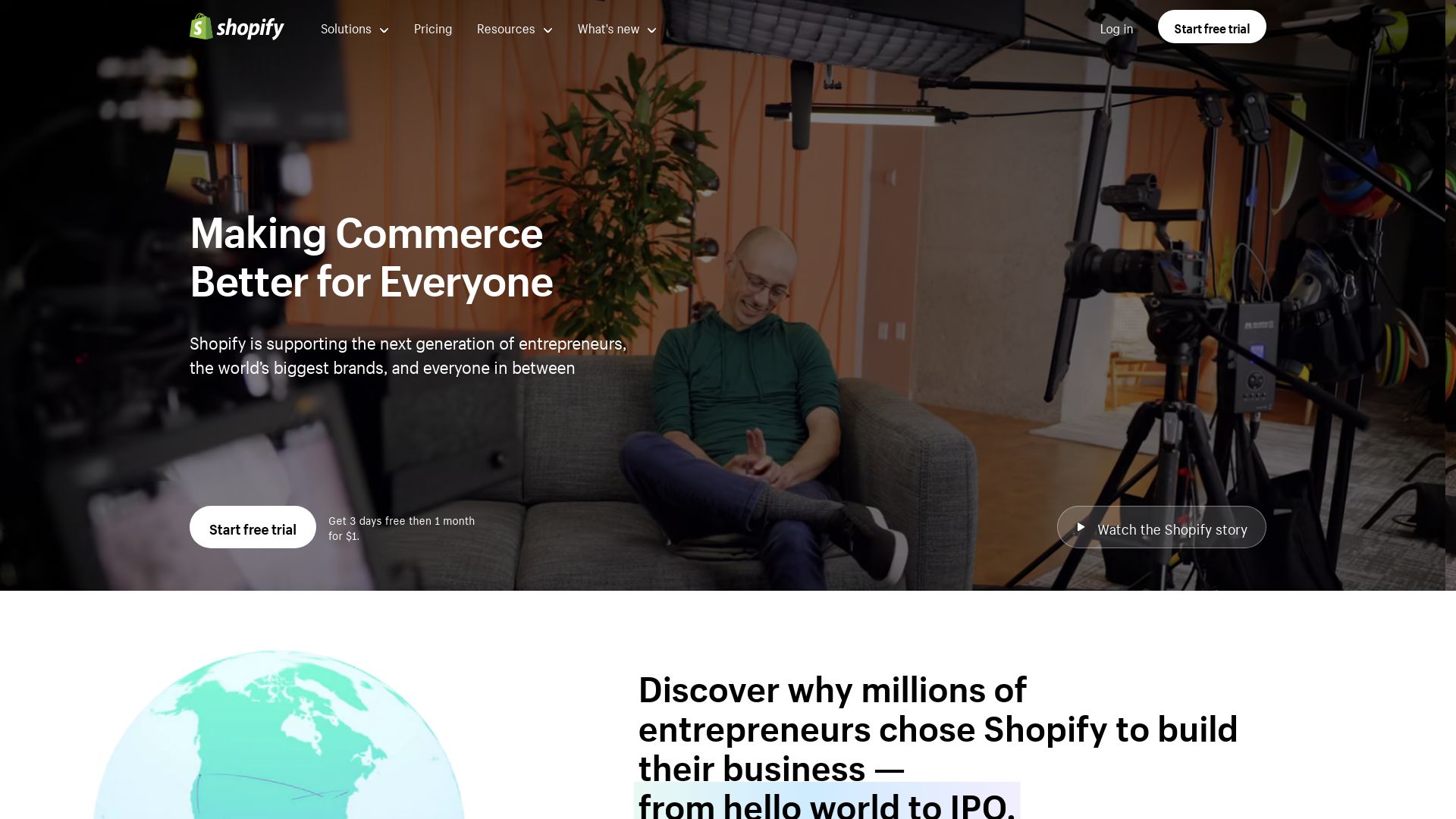
If you’re on the hunt for a robust online store builder with a wealth of templates, then Shopify might be what you need. A platform that provides pre-made designs, it is a go-to choice for many merchants looking to kickstart their eCommerce venture.
Shopify Top Features
- Fairly straightforward setup: Shopify’s platform is intuitive, while also providing considerable levels of personalization options to store owners.
- Wide variety of templates: Pre-made designs save a lot of time and effort in creating an online store.
- Built-in SEO features: Nearly 43% of eCommerce sales stemming from search engines, Shopify’s SEO functionality is a key feature.
- Integration with ERP and CRM systems: Proving its flexibility and scalability, Shopify allows integration with various ERP or CRM systems for smooth business operations.
- Customization: Within Shopify’s realm, the ability to custom design themes to facilitate unique aesthetics is a significant advantage.
| Quick-launch solutions | The Accelerator Programme by Eastside Co provides merchants with the opportunity to launch stores in less than four weeks. |
| Unique Page Designs | Custom designing allows creating unique page templates for different categories like product pages, blog pages, etc. |
| User Retention Features | Search functionality, discount tools, carousel slides, mega menus, and other features enhance user engagement. |
Shopify Limitations
- Lack of brand-specific aesthetics in default Shopify templates might be a downside for some users seeking uniqueness.
- Costs associated with custom Shopify website design could be a potential barrier for businesses with a limited budget.
- Dependence on third-party templates or web design agencies for custom designs could prove to be a stumbling block
Shopify Pricing
An amalgamation of different cost components, Shopify pricing includes monthly subscription charges ($29.99-$299.99), theme/template costs, custom Shopify website design expenses, and the costs associated with additional functionality developments.
Shopify Use Cases
Small and Medium Businesses
Shopify’s affordability and wide variety of design templates make it an ideal choice for small and medium businesses looking to make their mark in the online marketplace.
Businesses seeking fast deployment
With offerings like the Accelerator Programme, businesses looking for quick launch solutions can tremendously benefit from Shopify.
SEO-centric Businesses
With inherent SEO capabilities, Shopify is a boon for businesses aiming at enhancing their brand visibility on search engines.
OpenCart
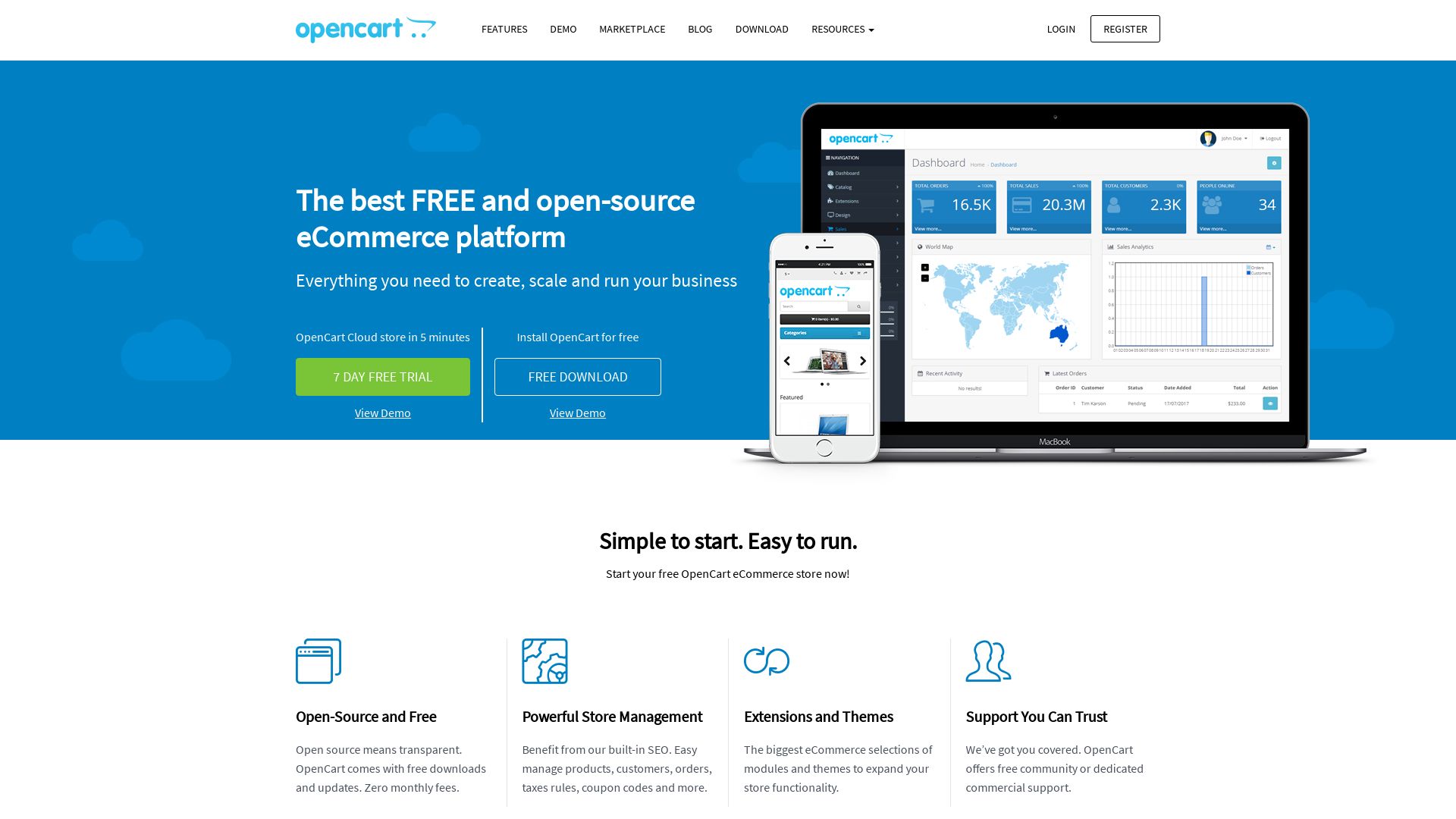
Your search for a frugal yet functional e-commerce platform has the road signs pointing to OpenCart. A free, open-source trouper, OpenCart helps you bid adieu to the monotony of online stores. The brainchild of Daniel Kerr, this platform has successfully charmed 292,051 websites and counting. When you get technical with source code modifications, you can tick “store customizations” off your to-do list.
OpenCart Top Features
- Free unless you drown in hosting and extension costs.
- Pre-equipped essentials and fancy extensions for a spruced up online store.
- Admin Dashboard that plays the analytics game strong.
- Has more roles than an actor, letting you manage your webstore like a Pro!
- Different currency and language support faster than you can say “Where’s my Passport?”
- An admirable ally to digital product sales.
| OpenCart Features | Details |
|---|---|
| Offers Discounts, Coupons, and Specials | Say hello to increased sales and happier customers! |
| Backup and Restore Tools | Every eCommerce superhero needs a backup plan! |
| Integration with Many Payment Providers | No additional fees, more happy tears! |
OpenCart Downsides
- Technical prowess is an unsaid requirement for performance optimization.
- Limited functionality and some extensions may not live up to your expectations.
- Not the best choice for high-level functional, large-scale online stores.
- SEO might need extra love and attention.
OpenCart Pricing
Pay for the hosting and extensions, everything else on OpenCart is just-like-that FREE!
OpenCart Use Cases
Use case 1: E-commerce startups
If you are launching your own e-commerce platform or looking to switch, OpenCart gives you a jumpstart with its cost and time-effectiveness.
Use case 2: Businesses with basic web experience
Brush up on your PHP and make the most of OpenCart’s user-friendly, simple yet scalable platform for your webstore.
Use case 3: Managing Multiple Retail Platforms
Forget one, OpenCart lets you joust with multiple online stores simultaneously.
Drupal
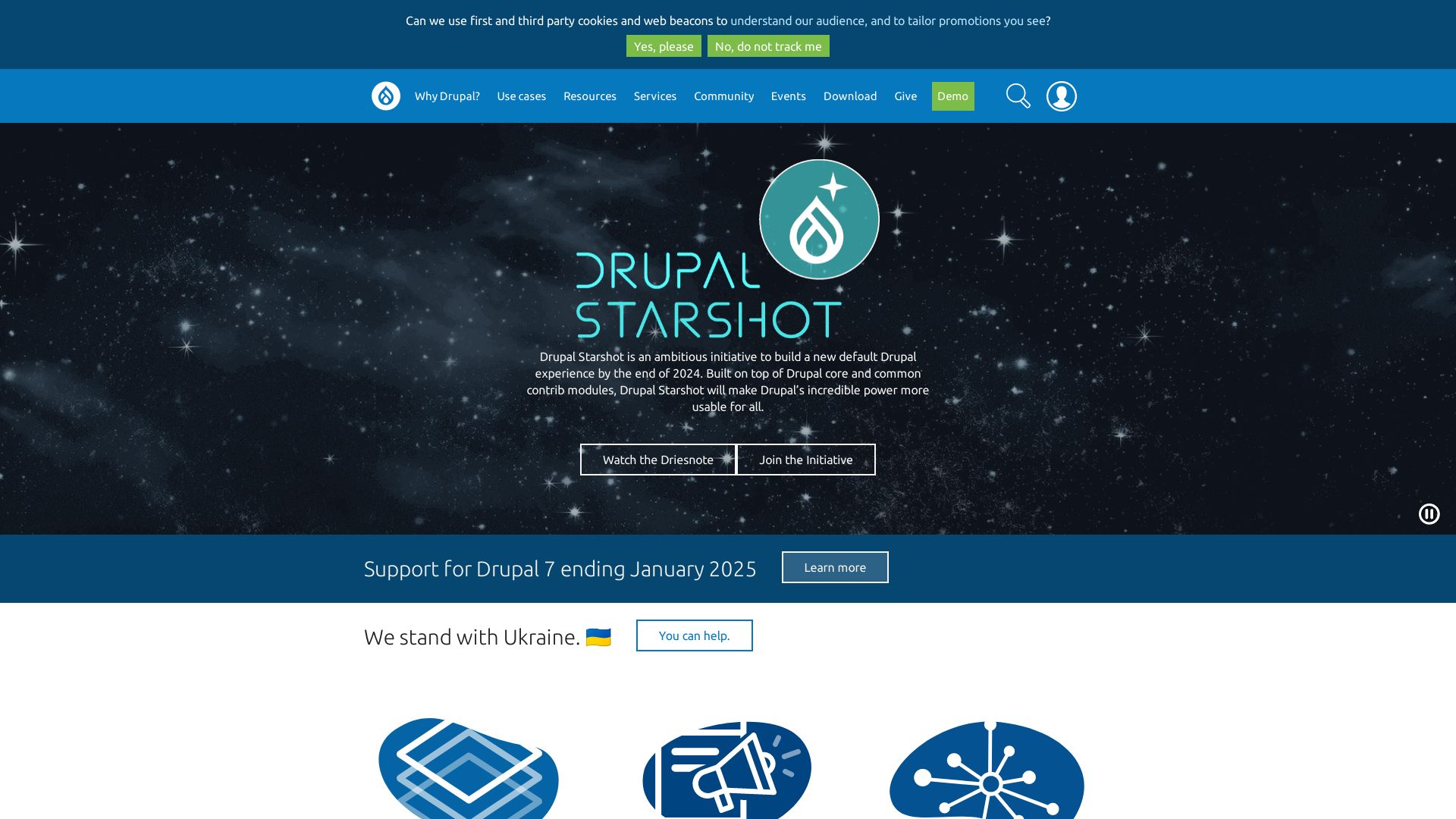
Enter the world of Drupal, a powerhouse for creating complex eCommerce and community websites. Founded by university students back in 2000, Drupal powers millions of websites globally and continues to cater to the shifting technological paradigms.
Top Drupal Features
- Open-source and highly adaptable framework designed for business growth.
- Accommodates traditional eCommerce requirements such as Shopping cart, checkout form, and product catalog management.
- Allows building of headless commerce backend provider via JSON:API or custom REST resources.
- Fulfills global support needs for international currency, tax, language.
- Community-driven development with regular innovations.
- Fully responsive and mobile-ready eCommerce sites.
| Drupal Features | Description |
|---|---|
| Customization Options | Empower developers with Drupal’s accessibility and options for customization. |
| Multilingual Sites | Drupal 9 comes with four inbuilt modules enabling creation of multilingual sites. |
| Professional Support | Dedicated support available from Centarro and DrupalPartners. |
Drupal Limitations
- The cost of Drupal website development can be high, depending on customization, website size, and project complexity.
- Despite being a powerful tool, Drupal may be complex for beginners to adapt to.
Drupal Pricing
Cost of development varies by region and complexity. A basic website ranges from $1000-$10000 depending on location, and a large-scale business website goes up to $15000-$42000. Pricing for new eCommerce websites with Drupal Commerce ranges from $20k to $100K.
Drupal Use Cases
Use case 1 – Small to Medium-sized Businesses
With its adaptable and scalable framework, Drupal serves as an excellent choice for small to medium businesses looking to build a solid eCommerce platform.
Use case 2 – Large Enterprises
For large enterprises with complex requirements and international presence, Drupal offers comprehensive solutions with multilingual support and responsive designs suitable for multiple platforms.
Use case 3 – Developers
Drupal’s open-source nature and unrestricted access to customization makes it a desirable tool for developers seeking to build user-driven sites.
Squarespace
Welcome to the world of Squarespace, a platform specially designed for those who are passionate about creating visually appealing websites with a focus on ecommerce.
Top Features of Squarespace
- Access to free trials and a gallery of expertly curated website templates.
- Allows creation and management of unlimited physical and digital products with an integrated shopping cart and multiple payment gateways.
- Equipped with powerful tools for visitor behavior analysis and sales tracking.
- Squarespace Commerce platform, specially built for online stores, comes with no transaction limit and a centralized content manager for hassle-free inventory management.
| Interesting Features | Details |
|---|---|
| Squarespace Extensions | This is Squarespace’s app store, which offers a limited set of applications geared towards enhancing your online platform’s functionality. |
| Squarespace Advanced Commerce plan | Includes premium features like carrier calculated shipping, abandoned cart recovery, automatic discounts, and subscription products. |
| Customer Support | Offers comprehensive support options through email, twitter, and live chat. |
Limitations of Squarespace
- Limited app selection in the Squarespace Extensions.
- No offline selling and inventory management options except integration with Square, a third-party solution.
- Transactional emails, tax rules setup are automated, offering a limited degree of customization.
Squarespace Pricing
No specific pricing information is provided in the company summary, please check their website for the most current pricing information.
Squarespace Use Cases
Ecommerce Store
Squarespace is perfect for ecommerce stores thanks to a variety of features from the free website trials to its no transaction limit online store.
Bloggers and Influencers
For bloggers and influencers, the built-in blogging platform and social media integration capabilities can provide a boost to their communication and customer engagement strategies.
Freelance Designers and Developers
Squarespace’s template-based website creation tools, along with the 24/7 support and access to Squarespace experts, make it an ideal platform for freelancers offering website design and development services.
Wix
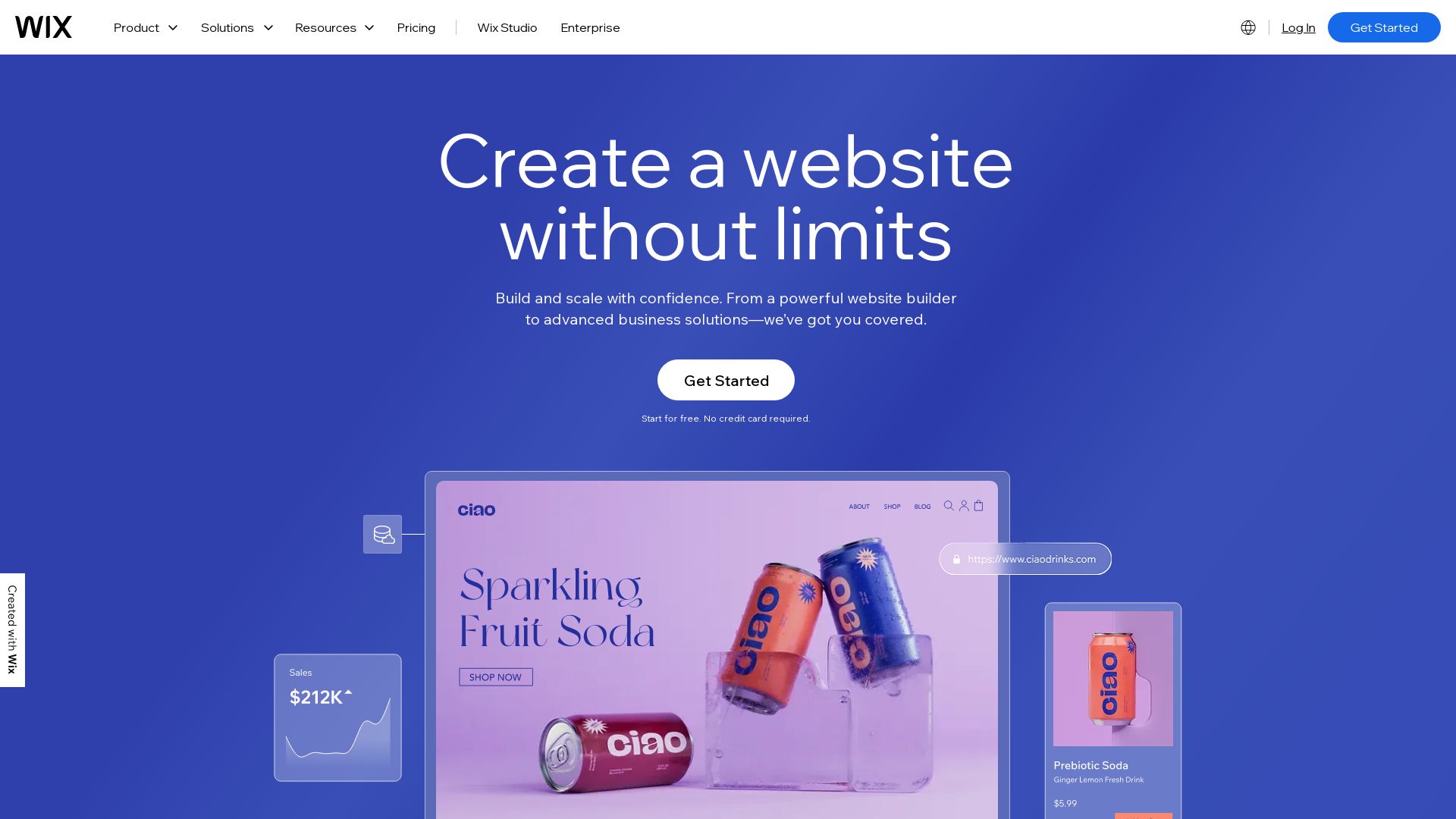
Wix is a robust, user-friendly eCommerce platform that provides businesses with the essential tools to manage, analyze, and grow their online presence.
Wix Top Features
- Fast, reliable eCommerce infrastructure handling up to 750 transactions per second.
- Offers over 80 integrated payment solutions, including Wix POS for brick-and-mortar businesses going online.
- Cross-border selling with localization capabilities and international payment providers.
- Velo for rapid web app deployment, enhancing eCommerce functions.
- 500+ designer-made templates and mobile-responsive design for a seamless user experience.
- Built-in marketing tools, data analytics, and insights for enhanced visibility in SERPs.
| Supports multichannel sales | Amazon, eBay, Wish, Facebook |
| Expandable with | dropshipping, print on demand |
| Manageable via | Wix Owner app |
Wix Limitations
- While Wix offers many templates, customization of these templates can be limited.
- The eCommerce functions may not be as expansive as that of dedicated eCommerce platforms.
- Global eCommerce tools notwithstanding, the actual process of going global can be complex and challenging.
Wix Use Cases
Startups
For startups looking to establish an online store, Wix offers a cost-effective solution with a plethora of templates to choose from, allowing for quick and easy website setup.
Brick-and-Mortar Businesses
Wix provides an effective pathway to the digital realm for brick-and-mortar businesses, thanks to its user-friendly POS system and ability to sync online and in-person sales seamlessly.
High-Volume Sales Businesses
Given its capacity to handle up to 750 transactions per second, Wix is ideal for businesses dealing with high-volume sales, guaranteeing robust and constant performance.
WordPress
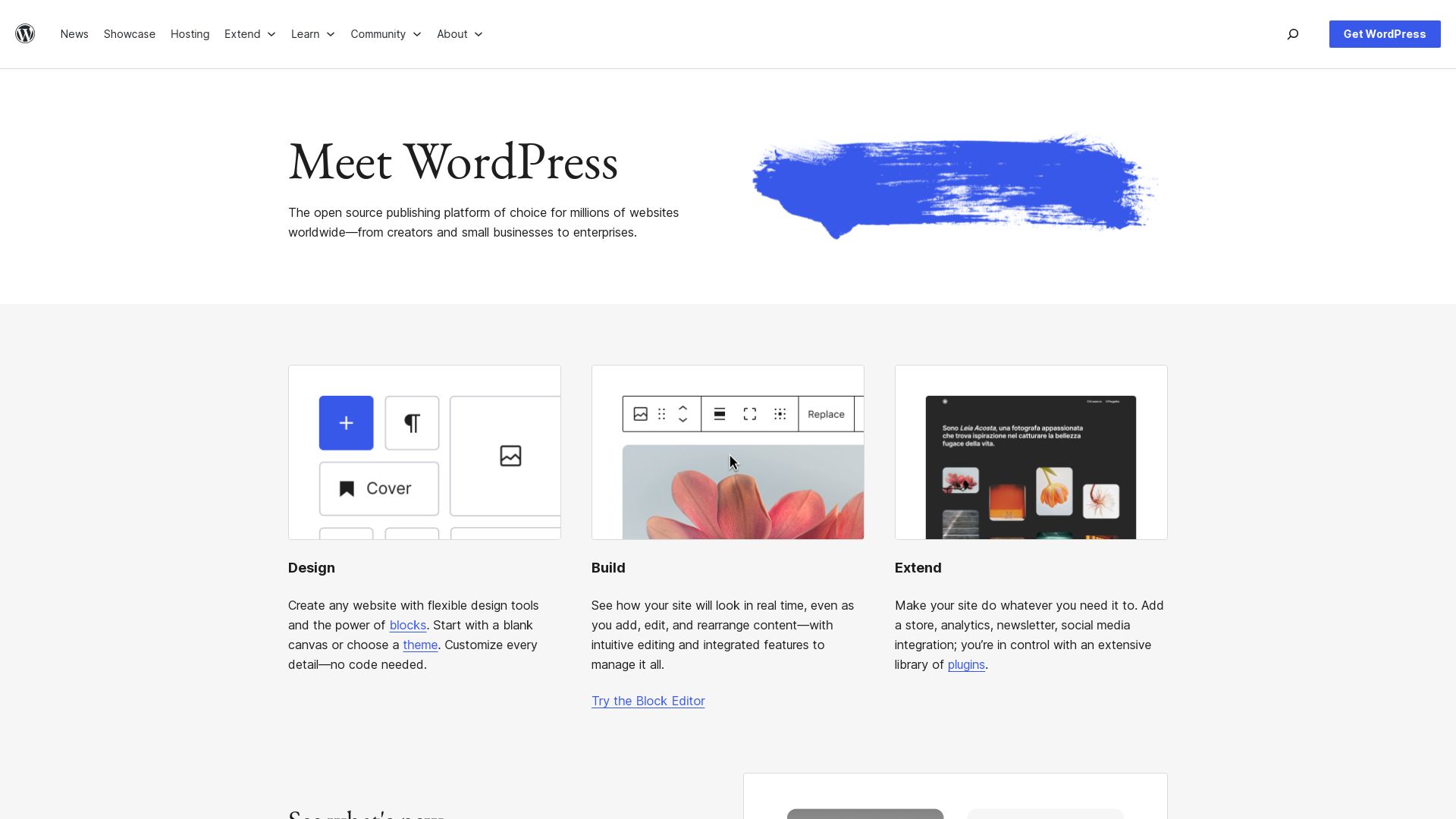
Established as a dominant force in the web development sphere, WordPress powers a staggering 40% of websites globally. Its extensive capabilities extend to eCommerce solutions through its efficient WooCommerce plugin, empowering a substantial 30% of online stores worldwide.
WordPress Top Features
- Domain registration, SSL, and other essential resources
- Over 1,200 eCommerce-focused WordPress themes for ample customization
- Multiple payment gateways, shipping options, and streamlined tax calculation through WooCommerce
- A vast range of plugins for functionalities like virtual product booking, upselling, pre-ordering
- Yoast SEO plugin for an SEO friendly site
| Additional Feature | Description |
|---|---|
| Auto-update and staging site | Promotes convenient automated updates and provides a staging environment for product testing |
| Marketing automation | Facilitates efficient inventory management, real-time shipping prices, print labels, and tracking codes |
| Security and performance | Offers high-performance DNS with SSL, site security and stats viewable at a glance, and auto-restoration, uptime monitoring features |
WordPress Limitations
- Not primarily an eCommerce CMS, leading to potential compatibility issues with specific plugins
- Additional costs for custom design, development, plugins, marketing, and hosting vary widely
WordPress Pricing
While WordPress itself is free, costs for domain registration, SSL, and other essentials range from $15-$50 monthly. Custom design and development services, essential for a specialized eCommerce presence, vary significantly, with design pricing from $1,000-$10,000 and development services starting at $25,000. Plug-ins pricing varies, alongside marketing services that can cost between $250-$5000 per month and hosting costs that range from $9/month to $119/month depending on your chosen host. WordPress also offers established plans starting from $25,000 annually through WordPress VIP.
WordPress Use Cases
Use case 1: eCommerce
With the WooCommerce plugin, WordPress proves an effective solution for building an eCommerce store, supporting features like multiple payment gateways and an array of shipping options.
Use case 2: SEO Optimization
For businesses looking to maximize their SEO, WordPress provides the Yoast SEO plugin, making it easier to create an SEO friendly site.
Use case 3: Customization
For those looking for a fully customizable website, WordPress excels with an option of over 1,200 eCommerce-focused themes and a range of plugins for a personalized touch.
Logan Bellbrook
Content writer @ Aircada with a knack for nature & AR/VR/XR. Blogging the intersection of tech & terrain.



